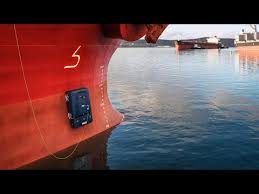
Breaking News
 Which party represents Americans?
Which party represents Americans?
 Even The Best AI Scenario Is The End Of Everything We've Ever Been
Even The Best AI Scenario Is The End Of Everything We've Ever Been
 In Simulated War Games, Top AI Models Recommended Using Nukes 95% Of The Time
In Simulated War Games, Top AI Models Recommended Using Nukes 95% Of The Time
 Rising Cancer Rates, the Globalist Agenda, and the Big Business Land Grab Making You Poor
Rising Cancer Rates, the Globalist Agenda, and the Big Business Land Grab Making You Poor
Top Tech News
 New Spray-on Powder Instantly Seals Life-Threatening Wounds in Battle or During Disasters
New Spray-on Powder Instantly Seals Life-Threatening Wounds in Battle or During Disasters
 AI-enhanced stethoscope excels at listening to our hearts
AI-enhanced stethoscope excels at listening to our hearts
 Flame-treated sunscreen keeps the zinc but cuts the smeary white look
Flame-treated sunscreen keeps the zinc but cuts the smeary white look
 Display hub adds three more screens powered through single USB port
Display hub adds three more screens powered through single USB port
 We Finally Know How Fast The Tesla Semi Will Charge: Very, Very Fast
We Finally Know How Fast The Tesla Semi Will Charge: Very, Very Fast
 Drone-launching underwater drone hitches a ride on ship and sub hulls
Drone-launching underwater drone hitches a ride on ship and sub hulls
 Humanoid Robots Get "Brains" As Dual-Use Fears Mount
Humanoid Robots Get "Brains" As Dual-Use Fears Mount
 SpaceX Authorized to Increase High Speed Internet Download Speeds 5X Through 2026
SpaceX Authorized to Increase High Speed Internet Download Speeds 5X Through 2026
 Space AI is the Key to the Technological Singularity
Space AI is the Key to the Technological Singularity
 Velocitor X-1 eVTOL could be beating the traffic in just a year
Velocitor X-1 eVTOL could be beating the traffic in just a year
Aquatic robot crawls hulls to brush off barnacles

The growth of marine organisms on ship hulls is known as biofouling, and it poses a couple of key problems.
First and foremost, by adding a rough living coating to the hull, it keeps ships from smoothly cutting through the water. This means that their engines have to work harder in order to maintain a given speed, thus using more fuel and producing more exhaust. Additionally, the introduction of invasive, non-native species may occur if organisms latch on in one geographical location and then reproduce in another.
With these issues in mind, Norwegian company Jotun has collaborated with Swedish tech firm Semcon – along with other partners – to develop its Hull Skating Solutions system.



